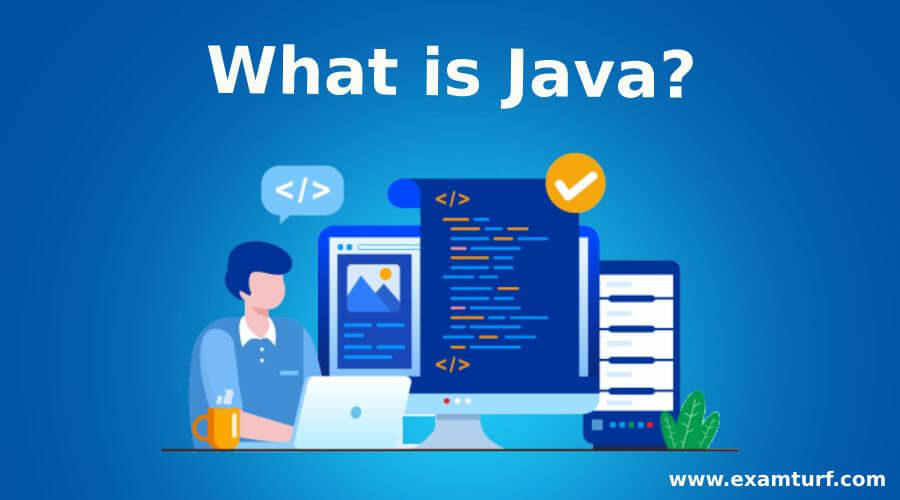
Introduction To Java
The following article provides an outline for What is Java? Java is a high-level class-based programming language. It is an object-oriented programming language and it has a base from the C language. The syntax of the Java language is almost similar to C and C. It is developed by Sun Microsystems in 1995. James Gosling is known to be the father of the Java language. As Java is platform-independent, developers can run Java code on many platforms. Write code one time and run the compiled code anywhere. It supports Unix, Linux, Windows, and Mac OS. It is the most famous language because it is a more secure programming language.
Advantages Of Java
Given below are the advantages mentioned:
- It is an easy language to learn, write code, compile, and debug.
- It is platform-independent. You can run the program on any computer easily.
- It is object-oriented hence you can reuse the modules.
- It is a reliable and secure language.
- It supports multithreading to perform many tasks at a time.
Java Object-Oriented Concepts
Given below are the object-oriented concepts:
1. Objects and Classes: Classes are the set of properties and methods, whereas objects consist of state and behavior.
2. Constructor: A constructor is like a method and it runs when the instance is created. If there is no constructor defined then Java creates a default constructor at the time of object creation.
3. Inheritance: Using the Inheritance one class can acquire the properties of another class. The class that inherits the properties is called the derived class or subclass. And the class from which properties are inherited is called parent class or superclass.
4. Polymorphism: In polymorphism, we can perform a task in different ways. It includes two types of polymorphism: Run-time and compile-time polymorphism.
5. Abstraction: Abstraction is to hide certain details. An abstract class may or may not include an abstract method. An abstract class cannot use to create the object. The body of the abstract method is provided by the inherited class.
6. Interface: We cannot achieve multiple inheritance in Java but Java enables us to implement it using the interface. It declares methods but doesn’t implement the method’s body. The class can implement many interfaces.
Java Supports Diverse Applications
Given below are the applications of Java:
1. Mobile Application: It is compatible with android, so you can develop a secure mobile app with Java.
2. Desktop Application: It provides GUI for desktop applications through AWT, swing, and JavaFX. AWT provides a toolkit for GUI.
3. Web Application: By using it, you can develop dynamic web applications. Java supports servlet, JavaServerPage, JSTL technologies for web applications.
4. Gaming Application: jMonkeyEngine is designed for Java game developers to create 3D games. It is an open-source and developer-friendly game engine.
5. Enterprise Application: Java Enterprise Edition is a famous platform for banking applications. Because of the high-security, the developer’s first choice is Java for banking App. It supports network applications.
6. Scientific Application: It is used to develop scientific applications that contain many mathematical calculations.
7. Cloud-based Applications: It provides many cloud development tools such as Oracle Java Cloud Service, AWS SDK for Java, Google App Engine, etc.
Java Technologies
Given below are the java technologies:
| Java Technology | Description |
| Java Database Connectivity (JDBC) | JDBC library provides API for database handling. Used to make a connection to the database. |
| Java server pages (JSP) | JSP is a server-side programming technology. |
| Enterprise JavaBeans (EJB) | It is provided to develop highly secure, scalable, and robust enterprise-level applications. |
| Java Message Service (JMS) | It is an API for message service to send and receive messages. |
| Java Naming and Directory Interface (JNDI) | JNDI is an API that provides services for naming and directory functionality. |
| Java Servlet | This technology is used to create web applications. Servlet handles any complex request from the web servers. |
| Java Transaction API (JTA) | JTA is an API for transaction management such as update and access data. |
| Java Transaction Service (JTS) | It is for the implementation of the transaction manager. |
Conclusion
Java is widely popular among developers as it is a comprehensive language. The exceptional features make it a leading computer programming language.
Recommended Articles
This is a guide to What is Java? Here we discuss the introduction to java, its advantages along with applications & technologies. You can also go through our other related articles to learn more –
